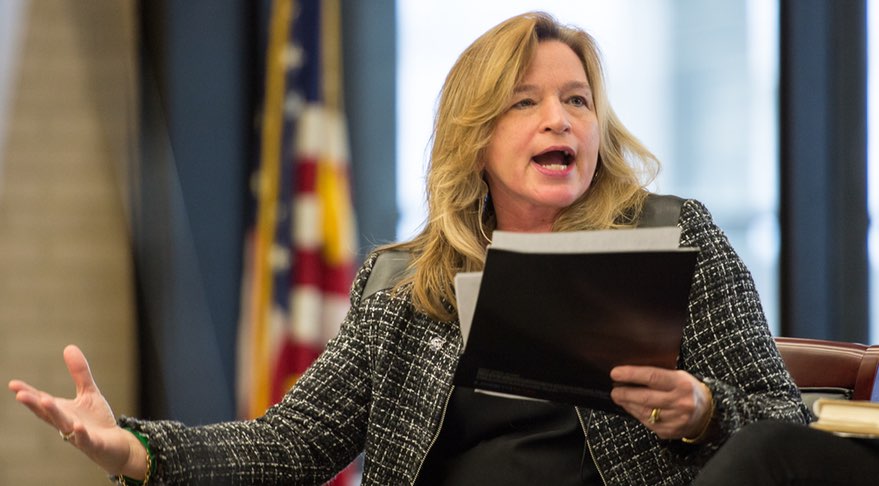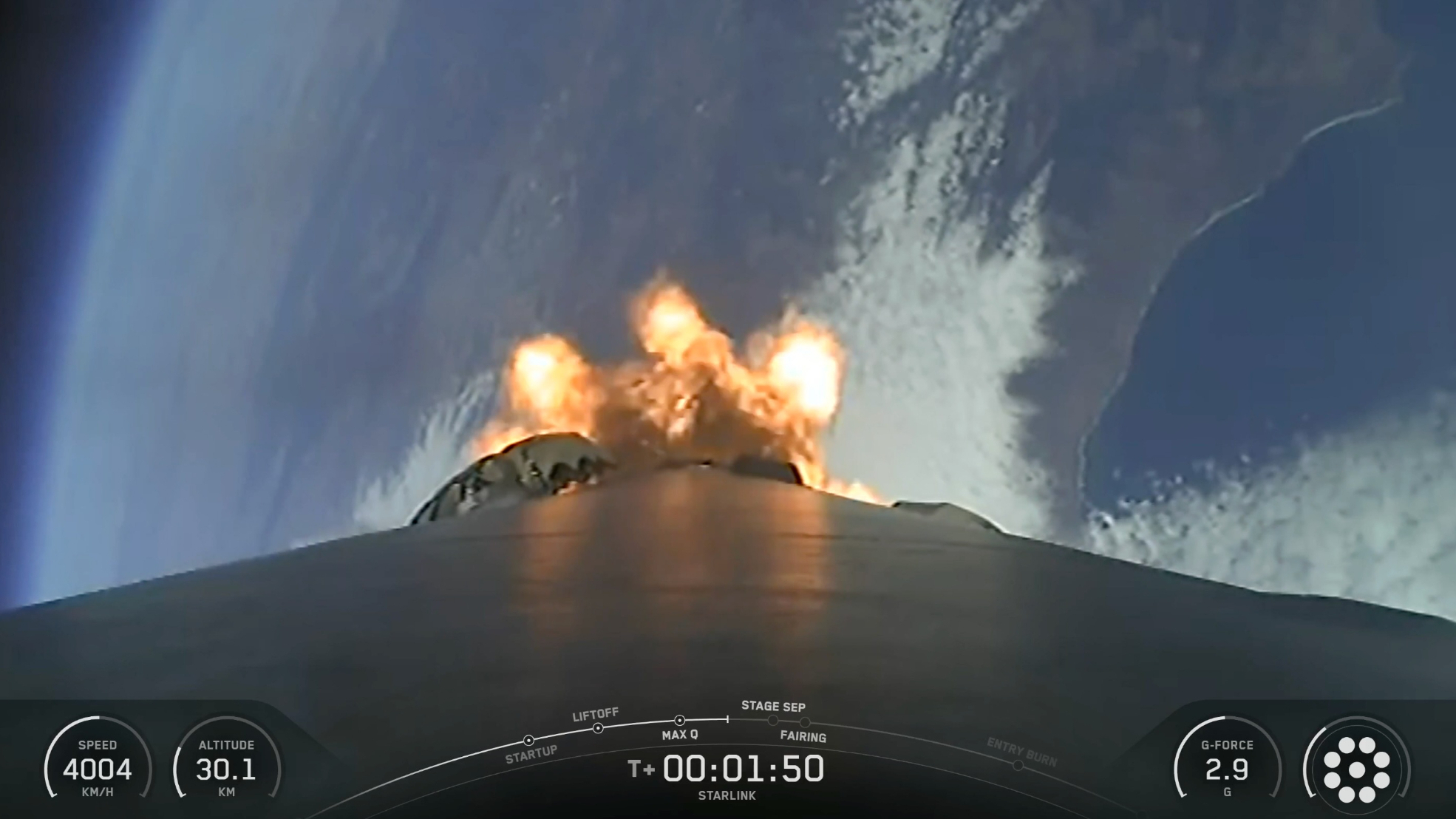Ellen Stofan, NASA's Chief Scientist, Departs Space Agency

WASHINGTON — NASA's chief scientist is leaving the agency after more than three years on the job, as NASA refreshes the leadership of its science programs.
Ellen Stofan left NASA this month after serving as chief scientist since August 2013. Agency spokesman Dwayne Brown was not immediately able to provide an exact departure date, or plans to select a new chief scientist.
Stofan's departure was noted by NASA publicly only in an interview the agency posted on its Tumblr social media account Dec. 21. In the interview, NASA said Stofan was "departing for new adventures," but was not more specific.
Stofan, in a Dec. 5 talk at an astrobiology symposium held by the National Academies' Space Studies Board in Irvine, California, hinted that she was soon leaving the agency. "I am leaving in two weeks, so I guess that falling sign is some indication of that," she said when a placard with her name on it fell off a podium during her speech.
The chief scientist serves as the principal advisor to the NASA administrator on science issues, including strategic planning of NASA science programs and coordination with other government agencies and the scientific community, but is not directly involved in the management of the various programs of NASA's Science Mission Directorate.
In the NASA interview, Stofan cited a range of "fun challenges" she worked on while chief scientist, including helping develop NASA's long-term strategy for human Mars exploration. That effort, she said, is a key part of a broader scientific theme of searching for evidence of life beyond Earth.
"People have long wondered if we are alone, and we are now actually going to answer that question in the next few decades. We are exploring Mars, where it is very likely that life evolved at around the same time life evolved here on Earth," she said. "It will likely take future Mars astronauts to find the best evidence of Mars life."
Breaking space news, the latest updates on rocket launches, skywatching events and more!
Institutionally, she said one of the achievements she was most proud of as chief scientist was getting the agency to voluntarily request demographic information in grant proposals submitted by scientists. That information, she said, is important to understanding any biases in how the agency awards those grants.
"Implicit or unconscious bias is all around us; we may act on deep-seated biases that we don't even know we have," she said. "The first step in dealing with bias is seeing if you have a problem, and that is what the data collection will tell us."
Stofan's departure coincides with NASA selecting a new deputy associate administrator for science. In a Dec. 20 internal memo, the agency said that Dennis Andrucyk will take the position effective Jan. 17. Andrucyk, currently the deputy associate administrator for NASA's Space Technology Mission Directorate and acting chief technologist, will split his time between the science and space technology directorates until his formal start date.
"Dennis brings to this position a wealth of organizational and leadership experience within NASA," Thomas Zurbuchen, NASA associate administrator for science, said in the memo. "His deep technical knowledge and innovative forward thinking will further enhance our ability to build successful and new missions that help answer some of the most fundamental science questions of our time, including the search for life beyond Earth."
Andrucyk succeeds Geoff Yoder, who announced in September that he was retiring from NASA at the end of the year. Yoder served as acting associate administrator for science for several months in 2016, after John Grunsfeld retired in April and until Zurbuchen took over in early October.
This story was provided by SpaceNews, dedicated to covering all aspects of the space industry.
Join our Space Forums to keep talking space on the latest missions, night sky and more! And if you have a news tip, correction or comment, let us know at: community@space.com.

Jeff Foust is a Senior Staff Writer at SpaceNews, a space industry news magazine and website, where he writes about space policy, commercial spaceflight and other aerospace industry topics. Jeff has a Ph.D. in planetary sciences from the Massachusetts Institute of Technology and earned a bachelor's degree in geophysics and planetary science from the California Institute of Technology. You can see Jeff's latest projects by following him on Twitter.

